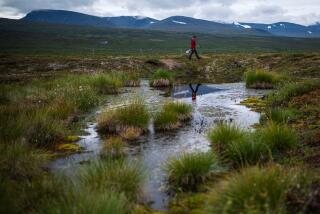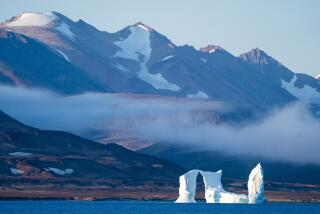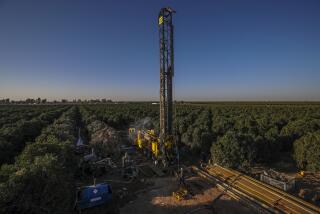Non-Arctic Glaciers Rapidly Defrosting, Scientist Says
- Share via
BOSTON — All the glaciers in Montana’s Glacier National Park will be gone in the next 50 to 70 years, according to researchers who have been measuring the rate that glaciers around the world are melting.
Those glaciers are melting faster than scientists previously thought, according to the study by geologist Mark Meier, who presented his findings Tuesday at a meeting of the American Geophysical Union in Boston.
“The glaciers are receding and they’re becoming thinner, and you can see this,” Meier said, placing the blame squarely on global warming.
Meier and his research team at the University of Colorado at Boulder looked at characteristics of glaciers worldwide during the last 100 years, then compared the measurements with today’s ice caps.
They found that mid-latitude glaciers--those outside of Antarctica and Greenland--had receded and become thinner.
In the last century, the largest glacier on Mt. Kenya in Africa has lost 92% of its mass, and the glaciers in Russia’s Caucasus Mountains have shrunk by half, Meier found.
In 40 years, the Tien Shan Mountain range between China and Russia has lost 22% of its ice.
Though glaciers outside arctic regions account for only 6% of the world’s ice, they contribute more heavily to changes in sea level, the researchers said.
The melting ice caps are contributing to rising sea levels that lead to beach erosion, more severe inland storms and more frequent river flooding, Meier said.
More to Read
Sign up for Essential California
The most important California stories and recommendations in your inbox every morning.
You may occasionally receive promotional content from the Los Angeles Times.













